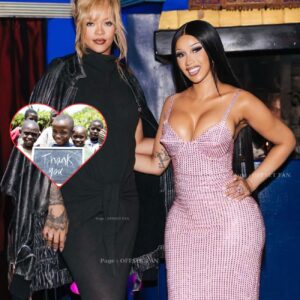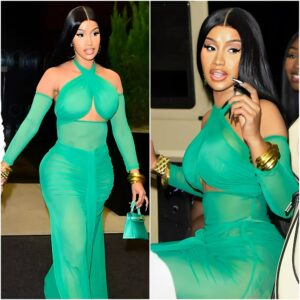Sicily Tyson, a titan in the world of stage, screen, and television, embodied resilience and integrity throughout her seven-decade career. Her portrayals of strong African-American women shattered stereotypes and became beacons for civil rights. However, behind the glitz and glamour of Hollywood, Tyson faced the harsh realities of discrimination and blackballing.
Tyson refused to accept roles that demeaned black people, advocating for dignity and authenticity in portrayals of African-American characters. This unwavering stance often led to rejection from the industry, with Hollywood hesitant to offer substantial roles to talented black actresses like Tyson.

In 1972, Tyson finally received her big break in the film “Sounder,” portraying Rebecca, the wife of a Louisiana sharecropper. Her performance exuded grace and authenticity, showcasing the resilience of black women facing adversity. Tyson’s commitment to portraying characters with dignity earned her critical acclaim and an Oscar nomination.
Throughout her career, Tyson continued to challenge stereotypes, portraying historical figures like Coretta Scott King and Harriet Tubman with depth and authenticity. Her Emmy-winning roles in projects like “Roots” and “The Marva Collins Story” solidified her status as an icon in the industry.

Despite her success, Tyson was not immune to the injustices prevalent in Hollywood. Like many black actors, she faced discrimination and marginalization, often being overlooked for roles or offered demeaning stereotypes. However, Tyson remained steadfast in her principles, refusing to compromise her integrity for the sake of fame or fortune.
The struggles faced by Tyson mirror those of other black actors who have been blackballed or marginalized for speaking out against injustice. Mo’Nique, an Oscar-winning actress, found herself at odds with industry heavyweights like Lee Daniels, Oprah Winfrey, and Tyler Perry after refusing to promote a film without proper compensation. Despite her talent and accolades, Mo’Nique’s refusal to conform to industry norms led to her being labeled as difficult and ultimately sidelined in Hollywood.
Stacey Dash, known for her role in “Clueless,” faced backlash after publicly embracing conservative views, which clashed with the predominantly liberal landscape of Hollywood. Dash’s outspoken political commentary caused her to be ostracized by many of her peers, highlighting the industry’s intolerance for diverse perspectives.
Jussie Smollett’s experience serves as a cautionary tale of the perils of seeking justice in Hollywood. Initially hailed as a victim of a hate crime, Smollett’s story unraveled amidst speculation of its authenticity, leading to public scrutiny and professional repercussions.
The stories of Tyson, Mo’Nique, Dash, and Smollett underscore the systemic issues of racism, discrimination, and censorship that continue to plague the entertainment industry. Despite facing adversity, these individuals have refused to be silenced, standing firm in their convictions and paving the way for a more inclusive and equitable future in Hollywood.
News
Cardi B was shocked at how quickly her children had grown up. Tears welled up in her eyes as she realized she had done many wrong things to them-be
Cardi B shares 5-year-old daughter Kulture and two-year-old son Wave with estranged husband Offset Cardi B confirmed her split with husband Offset earlier this year Cardi B’s children are growing up faster than her liking. On Saturday, the 31-year-old rapper…
She no even wear pant – reactions as American female rapper Cardi B mistakenly shows her kpekus while on live session (watch video)-be
Popular American rapper Cardi B spark buzz on the internet after she mistakenly shows her kpekus while on Instagram live session. The mother of one Cardi B while playing games with 169 million followers on Instagram live session, mistakenly…
Explore : Cardi B vs Rihanna – Who shows off the most? – LIFESTYLE WAR-be
Cardi B and Rihanna, two globally renowned singers, stand as powerful women who have amassed substantial fortunes throughout their careers. The question arises: who indulges more extravagantly in their luxurious lifestyle? In this comparison between Cardi B and Rihanna, let’s…
Cardi B Reveals the Meaning Behind Her Face Tattoo: A Subtle Yet Powerful Symbol of Love!-be
Cardi B, the renowned rapper, is giving fans a glimpse into the meaning behind her latest ink. After teasing the idea of a face tattoo earlier in the year, Cardi finally unveiled her new facial artwork during an Instagram Live…
JUST IN: Cardi B And Rihanna Made Surprise Impression By Raised Over $500,000 For Charity At Hollywood Cares Foundation-be
Rihanna and Cardi B were among the A-List stars who stepped out this week to support the Hollywood Cares Foundation. The mega-stars joined Hollywood Unlocked CEO Jason Lee at an intimate dinner to support his foundation on Tuesday (March 26) at The Little Door in…
Cardi B’s Bold Fashion Statement: B.u.t.t Tattoo Makes an Appearance Through Sheer Dress at VMAS After Party.-be
Cardi B’s fashion game is on fire as she embraces her “Bongos” style era. Recently, the rapper turned heads at her own MTV VMAs afterparty in the early hours of September 13th, sporting a striking bright green dress. This vibrant…
End of content
No more pages to load











